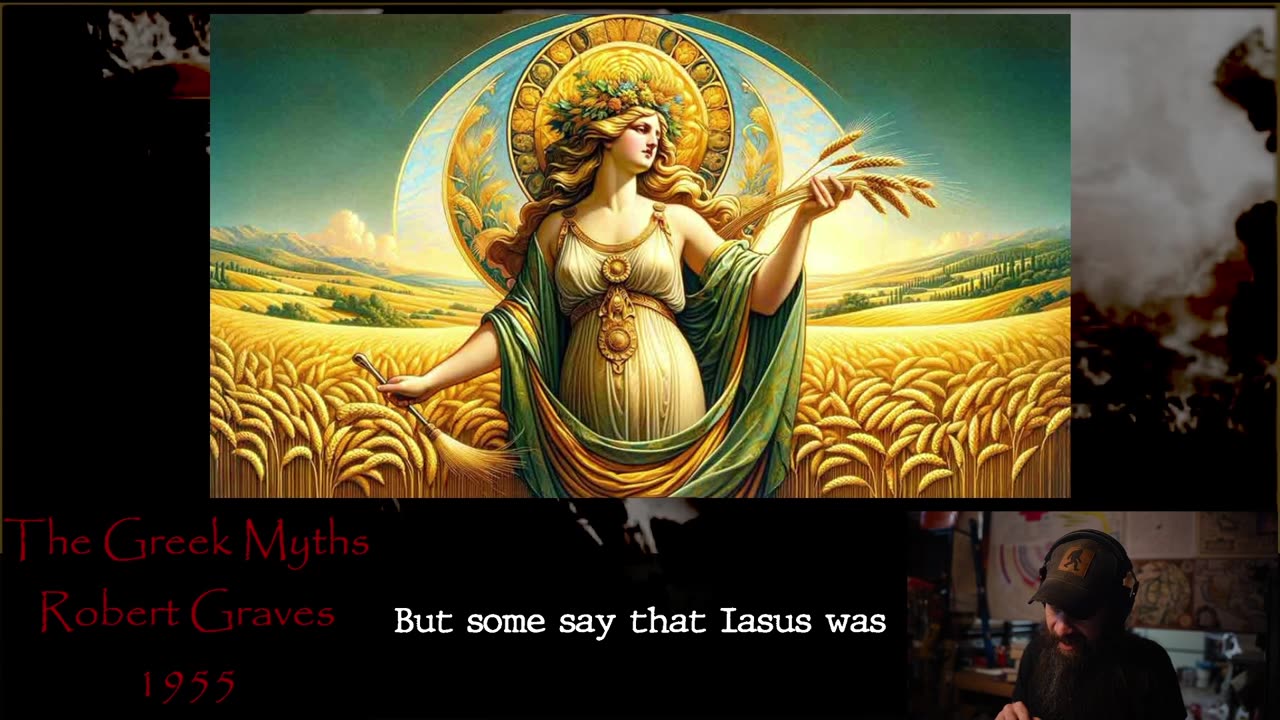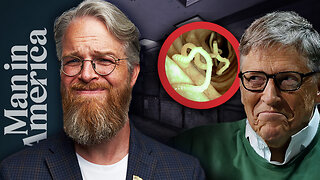Premium Only Content

The Greek Myths - B1 - 24.1
The Greek Myths - B1 - 24.1
The video explores the Greek myth involving Demeter, the goddess of the harvest, and her daughter Persephone (Core). The narrative discusses Demeter's grief over her daughter's abduction by Hades and the subsequent impact on agriculture and humanity, along with the eventual compromise that allowed Persephone to spend part of the year with her mother and part with Hades.
Key Points:
Demeter's Role and Family
Demeter, as the goddess of the harvest, has no husband and has two children, Core and Plutus, born out of wedlock. The complex relationships of gods illustrate the intertwining of love, jealousy, and divine intervention, with Zeus playing a critical role.
The Abduction of Persephone
Hades falls in love with Persephone and abducts her while she is picking flowers. Demeter searches for her daughter desperately, neglecting her duties, leading to famine on Earth. This sets the stage for the negotiations between gods regarding Persephone's fate.
Persephone's Deal with Hades
A compromise is reached where Persephone will spend a third of the year with Hades and the rest with Demeter. This arrangement symbolizes the seasons and agriculture's cyclic nature, revealing themes of loss and reunion inherent in the myth.
The Punishment of Ascalaphus
A gardener named Ascalaphus reveals that Persephone ate pomegranate seeds, thus binding her to Hades. As punishment for his betrayal, Demeter transforms him into an owl, showcasing the consequences of deceit in the narrative.
Cultural Impact and Teachings of Triptolamus
Demeter rewards those who aided her, teaching them agriculture and the importance of farming. This myth underscores the significance of agriculture in Greek culture, illustrating how Demeter's gifts shaped human civilization.
-
 LIVE
LIVE
SpartakusLIVE
3 hours agoNEW Update - BROKEN Attachment || Viewers REJOICE at the long-awaited Return of Their KING
5,850 watching -
 2:06:31
2:06:31
TimcastIRL
2 hours agoTrump To Deploy National Guard To Portland, Antifa Has Been WIPED OUT | Timcast IRL
73.6K62 -
 LIVE
LIVE
Laura Loomer
4 hours agoEP142: Loomer Prompts Calls For FBI To Investigate Palestinian Youth Movement
744 watching -
 LIVE
LIVE
Man in America
6 hours agoExposing the Cover-Up That Could Collapse Big Medicine: Parasites
908 watching -
 LIVE
LIVE
CHiLi XDD
2 hours agoTekken Fight Night
83 watching -
 LIVE
LIVE
ItsLancOfficial
7 hours agoFREAKY FRIDAY-GETTING FRIED-WELP! #TOTS
24 watching -
 1:09:11
1:09:11
Sarah Westall
3 hours agoRead the Signs: Are We Already Operating in a New Financial System? w/ Andy Schectman
2.13K1 -
 LIVE
LIVE
Flyover Conservatives
7 hours agoRicky Schroder Exposes How Hollywood Planted Him as a Child Star | FOC Show
815 watching -
 LIVE
LIVE
JahBlessCreates
1 hour ago🎉 TEKKEN TING, and maybe some music...
67 watching -
 LIVE
LIVE
GritsGG
2 hours agoTop 250 Ranked Grind! Dubulars!🫡
51 watching